Top 10 Best Academic Search Engines for Scholarly Articles in 2026
Research is the cornerstone of scientific discovery. However, sifting through the vast amount of scholarly literature can feel overwhelming. Fear not, intrepid researchers! Today, we will equip you with the top 10 search engines designed specifically to streamline your search for scientific papers.
We'll delve into the strengths of each platform, helping you identify the perfect tool for your specific research needs. Whether you're seeking a broad overview or a deep dive into a niche topic, our analysis will ensure you learn about the most relevant and reliable search engines to propel your research forward.
To further maximize your research efficiency, we'll also introduce you to Elephas, a powerful AI writing assistant that can revolutionize your research paper writing process. However, we'll save that discussion for later in our article. For now, let's delve into the best search engines to search for scientific papers.
Best Search Engines to Search for Scientific Papers at a Glance
Google Scholar: General search for scholarly literature across various disciplines.
BASE: Free search engine for scholarly articles with summaries and full-text links.
SciSpace: Powerful search engine with AI-powered recommendations for related research.
CORE: User-friendly search engine for open-access scholarly publications.
Scopus: Search engine for high-quality, peer-reviewed scientific publications.
PubMed: Free search engine for biomedical and life sciences literature.
JSTOR: Comprehensive digital library for scholarly articles, ebooks, and primary sources across disciplines.
Science.gov: Free search engine for scientific research from US government agencies.
Semantic Scholar: Uses AI to find relevant research papers and uncover hidden connections.
Baidu Scholar: Search engine for academic literature in Chinese
Top 10 Best Search Engines to Search for Scientific Papers
Best Search Engines to Search for Scientific Papers | Best For |
Google Scholar | General Academic Search |
Base | Scientfic Research Papers |
Scispace | AI-Powered Academic Search |
CORE | Latest Research Papers |
Scopus | Peer-Reviewed Focus |
Pubmed | Medical Research |
JSTOR | Articles, Ebooks, Images |
Science.gov | Search in US federal Agencies |
Semantic Scholar | Plain Language Search |
Baidu Scholar | English & Chinese |
1. Google Scholar

Google Scholar simplifies searching for scholarly literature. It crawls millions of academic publications across various disciplines, including articles, theses, books, and conference papers. Researchers can set up alerts to stay updated on new publications in their field. Google Scholar is like Google Search but specifically designed for academic research.
Google Scholar Key Features
Massive Database: Search roughly 200 million scholarly articles.
Find Freely Available Papers: Locate research papers and often access full PDFs.
Stay Updated: Set alerts for new publications in your field.
Explore Research: Discover related articles, references, and citations.
Easy Citation Management: Export citations in various formats.
Formatting: Easily export your search results into common citation formats like APA and MLA.
Google Scholar Reviews
We could not find any public reviews on Google Scholar, so we advise users to stay cautious when using the search engine.
2. Base
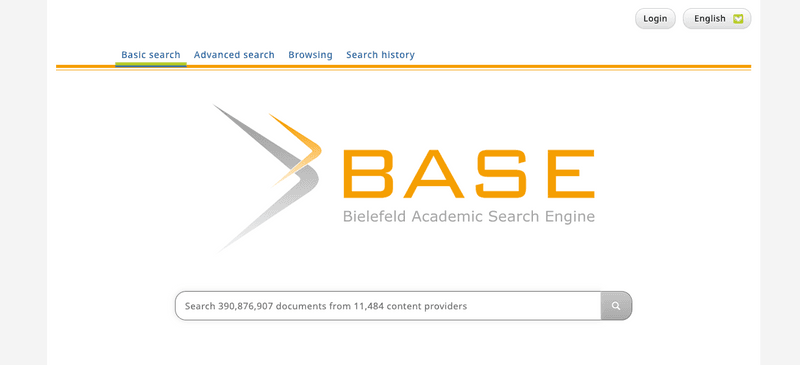
BASE (Bielefeld Academic Search Engine) is a free search engine specializing in scholarly articles. With over 136 million publications (including duplicates), BASE allows you to search for research papers across various disciplines. It provides summaries and links to full text whenever available. While BASE doesn't offer features like finding related articles, cited references, or who cited the paper, it excels in its core function: searching for scientific publications effortlessly.
Base Key Features
Free Search Engine: Access millions of scholarly publications without any cost.
Focus on Academic Content: Search a vast collection of research papers across various fields.
Article Summaries: Quickly grasp the research topic with summaries (abstracts) provided for each article.
Full Text Links: When available, access the full scientific paper directly through BASE.
Simple Interface: Navigate BASE's user-friendly interface to find what you need efficiently.
Base Reviews
We could not find any public reviews on Base search engine, so we advise users to stay cautious when using the search engine.
3. Scispace
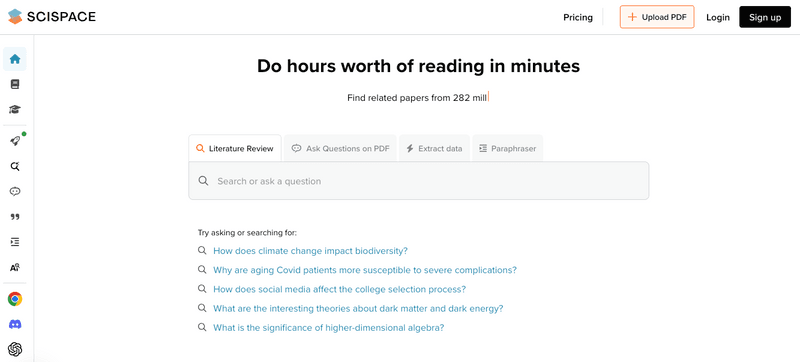
SciSpace is a powerful search engine specifically designed for academic research. With over 300 million scholarly articles across various fields, SciSpace utilizes advanced algorithms to deliver relevant search results. Its user-friendly interface makes navigating millions of research papers simple for both beginners and experienced researchers.
Scispace Key Features
Massive Academic Database: Search over 300 million scholarly articles.
Advanced Search & Filters: Find relevant papers by author, citation count, and more.
AI-powered Recommendations: Get suggestions for related research based on your search.
Integrated Research Tools: Read papers, conduct literature reviews, and generate citations.
User-friendly Interface: Easy to navigate for both novice and experienced researchers.
Scispace Reviews


4. CORE
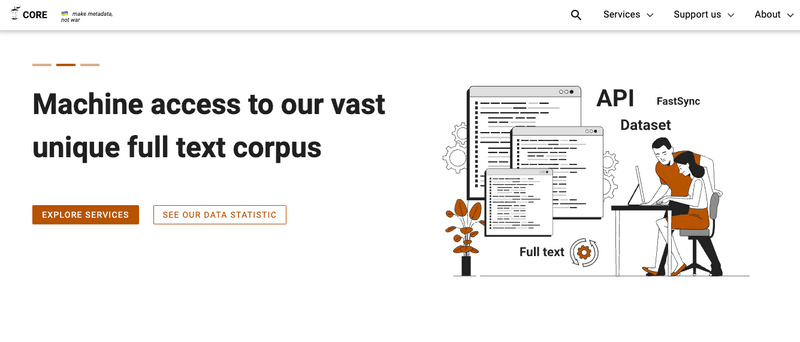
CORE is a user-friendly search engine designed specifically for scholarly research papers. Unlike traditional search engines, CORE focuses on freely accessible, open-access publications. This means you can easily find millions of scientific articles without any paywalls or restrictions. Every search result on CORE conveniently links directly to the full-text PDF or webpage of the research paper, allowing you to dive deeper into your chosen topic
Core Key Features
Vast Collection: Search through over 136 million academic publications.
Full Text Access: Every search result includes a link to the complete article, either in PDF or on the publisher's webpage.
Enhanced Discovery: Easily explore related articles to broaden your research scope.
Simple Interface: CORE's user-friendly design lets you find what you need quickly and efficiently.
Focus on Open Access: CORE prioritizes freely available research, ensuring you can access the latest scientific findings without restrictions.
Core Reviews
We could not find any public reviews on Core Search engine, so we advise users to stay cautious when using the search engine.
5. Scopus
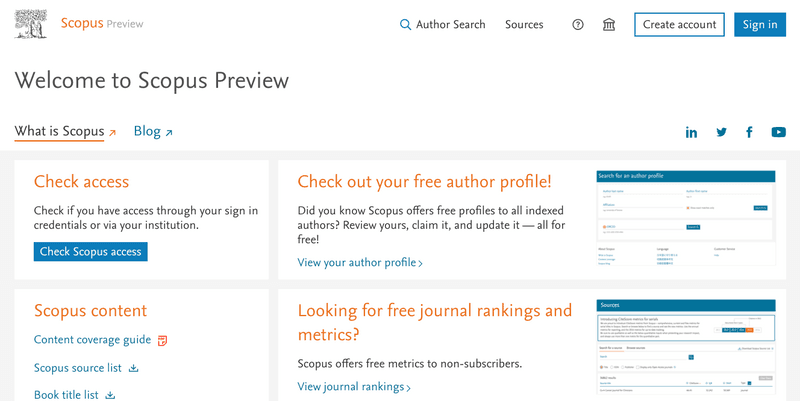
Scopus is a search engine for scientific research. It helps researchers find scholarly articles, conference papers, and patents. Unlike regular search engines, Scopus focuses on high-quality, peer-reviewed publications. This ensures you find reliable information to support your research. Scopus also offers advanced search options to help you narrow down your search and find relevant papers quickly.
Scopus Key Features
Extensive Coverage: Search millions of peer-reviewed publications across various disciplines.
Accurate Search: Find relevant research with advanced search options and filters.
Verified Content: Explore high-quality, trusted publications with a focus on peer review.
Author Tracking: Monitor the impact of your research by tracking citations and authorship.
Discover Connections: Explore how different research papers are linked and build upon each other.
Scopus Reviews
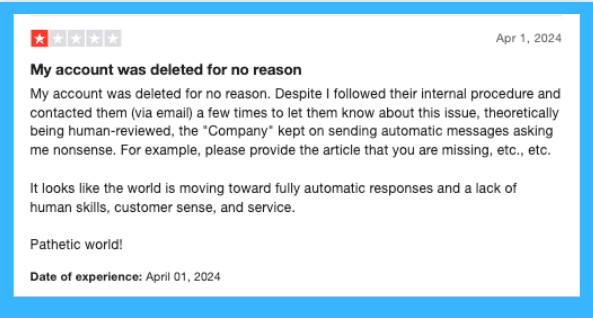

6. Pubmed
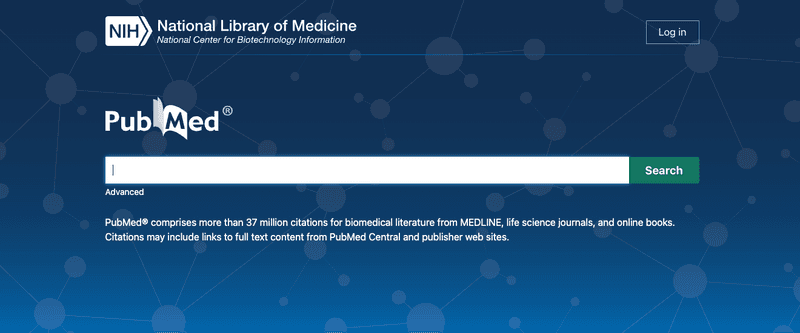
PubMed, a free search engine developed by the National Center for Biotechnology Information (NCBI), specializes in biomedical and life sciences literature. Offering a vast collection of scholarly articles, journals, clinical trials, and more, PubMed is a trusted resource for medical professionals, researchers, students, and anyone seeking scientific information.
Pubmed Key Features
Extensive Collection: Search millions of scientific citations in medicine, health sciences, and related fields.
Accurate Results: PubMed's curated database ensures the quality and trustworthiness of your search results.
Advanced Search Options: Refine your search using keywords, MeSH (Medical Subject Headings) terms, publication dates, and more.
User-Friendly Interface: The search engine features a user-friendly interface for efficient exploration of scientific data.
Pubmed Reviews
We could not find any public reviews on Pubmed, so we advise users to stay cautious when using the search engine.
7. JSTOR

JSTOR is a comprehensive digital library for researchers across disciplines. Search for academic journals, books, and primary sources in an easy-to-use interface. Explore millions of images and historical documents alongside scholarly articles. JSTOR offers an interdisciplinary approach, allowing you to research immigration through text and imagery or delve into art history with collections from leading museums.
JSTOR Key Features
Search All Content: Find scholarly articles, ebooks, images, and primary sources.
Primary Sources: Explore millions of historical documents, artwork, maps, and photographs.
Image Search: Discover over 3 million images to enhance your research.
Independent Voices: Access alternative publications like underground newspapers and magazines.
Artstor Integration: Search millions of art and cultural artifacts from leading institutions.
JSTOR Reviews
We could not find any public reviews on the JSTOR search engine, so we advise users to stay cautious when using the search engine.
8. Science.gov
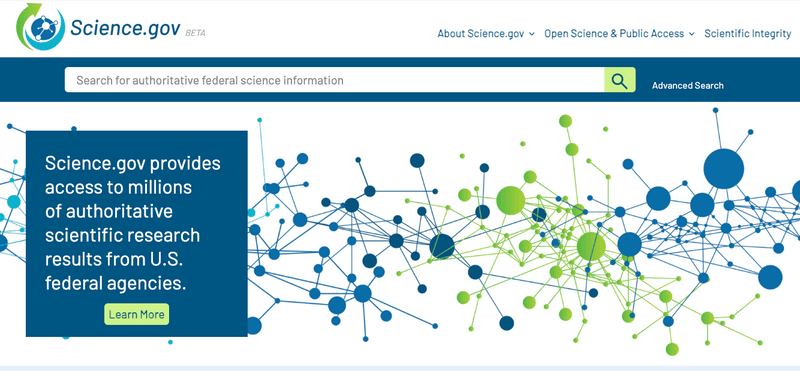
Science.gov is a free search engine designed specifically for scientific research. It simplifies your search by providing access to over 200 million scientific articles and reports from more than 15 U.S. federal agencies in one central location. This eliminates the need to search through individual agency websites, saving you valuable time and effort.
Science.gov Key Features
Search across 15+ U.S. government science agencies: Find scientific information from a vast collection of resources.
200 million+ scientific articles and reports: Access a comprehensive database of scientific research.
Links to full text (when available): Access the complete scientific paper if offered by the database.
Export Options: Export your search results in various citation formats for convenient reference management (availability may vary depending on the database).
Science.gov Reviews
We could not find any public reviews on science.gov, so we advise users to stay cautious when using the search engine.
9. Semantic Scholar
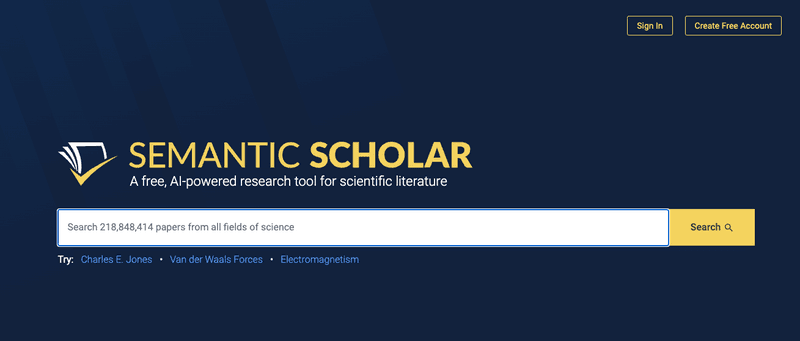
Semantic Scholar is a powerful search engine that uses artificial intelligence to help you find relevant research papers. Its advanced algorithms go beyond keywords to uncover hidden connections and relationships between research topics, delivering more impactful search results.
Semantic Scholar Key Features
Natural Language Search: Find research papers using plain language, just like you would search the web.
Comprehensive Coverage: Explore over 40 million scholarly articles across various disciplines.
Detailed Information: Access abstracts, related articles, references, citations, and links to full text (when available).
Export Options: Easily export citations in popular formats like APA, MLA, Chicago, and BibTeX.
Semantic Scholar Reviews
We could not find any public reviews on Semantic Scholar, so we advise users to stay cautious when using the search engine.
10. Baidu Scholar
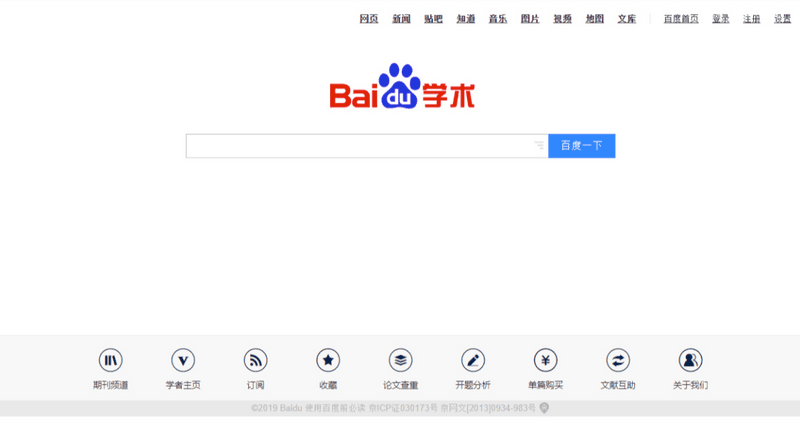
Baidu Scholar is a powerful search engine designed specifically for academic literature. Despite its Chinese interface, Baidu Scholar indexes a vast collection of scientific papers in English alongside Chinese publications. With over 100 million articles, it offers a valuable resource for researchers worldwide. While some features are limited, like the lack of "cited by" functionality and only showing snippets of abstracts.
Baidu Scholar Key Features
Multilingual Search: Find research papers in both English and Chinese.
Large Database: Explore over 100 million indexed articles.
Abstract and Reference Exploration: Gain insights from snippets of abstracts and identify related and cited articles.
Free to Use: Access and search for scientific papers without any cost.
Baidu Scholar Reviews


Our Selection Criteria to Pick Search Engines for Search for Scientific Papers
Our selection process focuses on several key criteria to ensure you get the most relevant and reliable results for your scientific inquiry.
1. Depth and Breadth of Content: A vast library of scientific papers is crucial. We looked for search engines that indexed millions of scholarly articles, journals, and publications across various disciplines.
2. Accuracy and Credibility: Trustworthy information is paramount in science. We prioritized search engines that focused on peer-reviewed publications and curated databases to ensure the quality of your results.
3. User-Friendly Interface: A user-friendly interface makes the search process efficient. We considered search engines with clear navigation, advanced search options, and filtering capabilities to help you refine your research.
4. Open Access: Unrestricted access to scientific knowledge is vital. We included search engines that offered a significant amount of freely available, open-access content, alongside those with subscription-based resources for comprehensive searching.
5. Additional Features: Powerful search engines go beyond basic searches. We considered functionalities like AI-powered recommendations for related research, citation management tools, and the ability to export search results in various formats.
By following these selection criteria, we create the top 10 search engines to search for scientific papers. So, explore all the search engines and find the one that is best to Search for Scientific Papers
How to Choose the Best Search Engine to Search for Scientific Papers
There are tons of search engines to search for scientific papers out there, and picking the best one for your scientific research can feel like a real challenge. Don't worry, we will help you find the perfect Search Engine to Search for Scientific Papers
Step 1: Identify Your Needs
Breadth vs. Depth: Are you looking for a general overview of a topic or a deep dive into specific research?
Open Access: Do you need freely available articles, or are you affiliated with an institution with access to a wider range of resources?
Focus: Is your research in a specific field like medicine, engineering, or social sciences?
Step 2: Choosing Your Weapon
Now that you know your needs, let's explore some of the top search engines to search for scientific papers:
General Search Engines:
Google Scholar: The go-to option for a broad search across many disciplines. It crawls millions of scholarly articles and often provides links to full PDFs.
BASE (Bielefeld Academic Search Engine): A search engine with over 136 million publications, offering summaries and links to full text whenever available.
Specialized Search Engines:
SciSpace: Employs AI to deliver relevant results and suggest related research based on your search.
CORE: Focuses on open-access publications, ensuring you can find millions of scientific articles without paywalls.
Scopus: Curates high-quality, peer-reviewed publications for a focus on reliable information.
PubMed: Developed for the medical and life sciences field, PubMed offers a vast collection of articles, journals, and clinical trials.
Additional Powerhouses:
JSTOR: A comprehensive digital library with scholarly articles, ebooks, and primary sources across disciplines, including historical documents and images.
Science.gov: A one-stop shop for scientific research from US government agencies, providing access to over 200 million articles and reports.
Semantic Scholar: Uses artificial intelligence to uncover hidden connections between research topics for more impactful results.
Baidu Scholar: While the interface is in Chinese, Baidu Scholar indexes a vast collection of scientific papers in both English and Chinese.
Remember: No single search engine is perfect. Experiment with a few based on your needs and combine them for a comprehensive search. Many of these engines allow advanced search options to further refine your results.
Elephas: Research Assistant that cuts Your Research Time to half
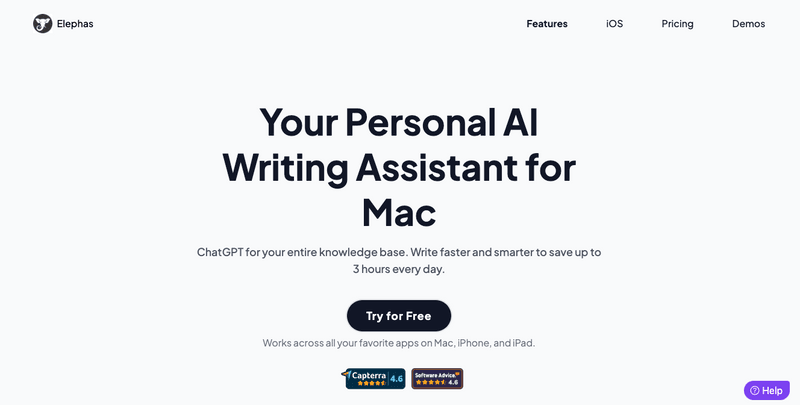
Now you've got the perfect search engine to find the best research papers, but what about after you've found them? Elephas is an AI writing assistant that can help you with every stage of your research paper writing, from summarizing complex sources to generating creative ideas and even helping you stay on track with your grammar and citations.
Here's how Elephas can make you a research paper writing master:
Summarizes complex research: Struggling to understand a dense academic paper? Elephas can break it down for you, highlighting the key points and saving you valuable time.
Boosts your writing: Whether you need help with brainstorming ideas, structuring your paper, or simply polishing your writing style, Elephas has a variety of features to get you there.
Check your grammar: No more typos or embarrassing mistakes! Elephas ensures your writing is clear, concise, and error-free.
Multiple writing styles: Need your paper to be formal or informal? Funny or serious? Elephas can adapt its writing style to fit your needs.
Works offline: Worried about data privacy? Elephas has an offline mode that lets you work securely without an internet connection.
These are just a few of the ways Elephas can help you write research papers faster and more efficiently. Elephas offers many more features that can significantly reduce your daily workload.
So why not give it a try and see how much time you can save?
Conclusion
In summary, there are many great search engines to search for scientific papers out there, each with its own strengths. The best one for you depends on what you're researching.
Need a quick overview? Try Google Scholar or BASE.
Want in-depth studies? Look at Scopus or PubMed (for medical stuff).
Need free articles? Try CORE or JSTOR (for more than just science).
If you're not sure where to start, try a few and see which one you like best. You can even use them together to find the most information!
Remember, the ideal search engine hinges on your specific requirements.
Are you seeking a broad overview of a particular field, or a deep dive into a niche topic?
Does open-access content suffice, or do you have institutional access to a wider range of resources?
What is your research area's primary discipline (medicine, engineering, social sciences)?
By considering these questions, you can ensure you select the most effective search engine to propel your research forward.
While powerful search engines are essential, there are additional tools that can significantly enhance your research efficiency. Consider Elephas, an advanced AI writing assistant designed to streamline every stage of the research paper writing process. From summarizing complex sources to generating creative ideas and maintaining flawless grammar and citations, Elephas helps you to become a research paper writing master.
FAQs
1. Where can I search for scientific papers?
You can search for scientific papers in many online search engines like Google Scholar, BASE, CORE, Scopus, PubMed, JSTOR, Science.gov, Semantic Scholar, and Baidu Scholar. Each engine has its strengths, so it depends on your specific needs.
2. How do you search for scientific papers effectively?
First, identify your needs. Are you looking for a general overview or a deep dive? Do you need free articles or have access to paid resources? Then choose a search engine that fits your needs. Finally, use the advanced search options in the research search engines to refine your results.
3. How to find research papers on Google?
Google Scholar is a search engine specifically designed for scholarly articles. You can search for papers by topic, author, title, and more. It also allows you to find freely available PDFs of many papers.

Comments
Your comment has been submitted